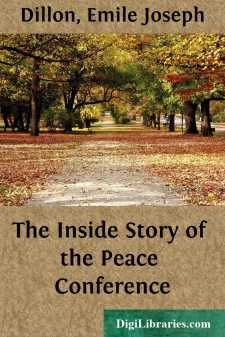Categories
- Antiques & Collectibles 13
- Architecture 36
- Art 48
- Bibles 22
- Biography & Autobiography 813
- Body, Mind & Spirit 142
- Business & Economics 28
- Children's Books 17
- Children's Fiction 14
- Computers 4
- Cooking 94
- Crafts & Hobbies 4
- Drama 346
- Education 46
- Family & Relationships 57
- Fiction 11829
- Games 19
- Gardening 17
- Health & Fitness 34
- History 1377
- House & Home 1
- Humor 147
- Juvenile Fiction 1873
- Juvenile Nonfiction 202
- Language Arts & Disciplines 88
- Law 16
- Literary Collections 686
- Literary Criticism 179
- Mathematics 13
- Medical 41
- Music 40
- Nature 179
- Non-Classifiable 1768
- Performing Arts 7
- Periodicals 1453
- Philosophy 64
- Photography 2
- Poetry 896
- Political Science 203
- Psychology 42
- Reference 154
- Religion 513
- Science 126
- Self-Help 84
- Social Science 81
- Sports & Recreation 34
- Study Aids 3
- Technology & Engineering 59
- Transportation 23
- Travel 463
- True Crime 29
The Sceptics of the Old Testament: Job - Koheleth - Agur
Description:
Excerpt
PREFACE
A careful perusal of this first English translation of the primitive text of "Job," "Koheleth," and the "Sayings of Agur" will, I doubt not, satisfy the most orthodox reader that I am fully warranted in characterising their authors as Sceptics. The epithet, I confess, may prove distasteful to many, but the truth, I trust, will be welcome to all. It is not easy to understand why any one who firmly believes that Providence is continually educing good from evil should hesitate to admit that it may in like manner allow sound moral principles to be enshrined in doubtful or even erroneous philosophical theories. Or, is trust in God to be made dependent upon the confirmation or rejection by physical science of, say, the Old Testament account of the origin of the rainbow? Agur, "Job" and "Koheleth" had outgrown the intellectual husks which a narrow, inadequate and erroneous account of God's dealings with man had caused to form around the minds of their countrymen, and they had the moral courage to put their words into harmony with their thoughts. Clearly perceiving that, whatever the sacerdotal class might say to the contrary, the political strength of the Hebrew people was spent and its religious ideals exploded, they sought to shift the centre of gravity from speculative theology to practical morality.
The manner in which they adjusted their hopes, fears, and aspirations to the new conditions, strikes the keynote of their respective characters. "Job," looking down upon the world from the tranquil heights of genius, is manful, calm, resigned. "Koheleth," shuddering at the gloom that envelops and the pain that convulses all living beings, prefers death to life, and freedom from suffering to "positive" pleasure; while Agur, revealing the bitterness bred by dispelled illusions and blasted hopes, administers a severe chastisement to those who first called them into being. All three[1] reject the dogma of retribution, the doctrine of eternal life and belief in the coming of a Messiah, over and above which they at times strip the notion of God of its most essential attributes, reducing it to the shadow of a mere metaphysical abstraction. This is why I call them Sceptics.
"Job" and "Koheleth" emphatically deny that there is any proof to be found of the so-called moral order in the universe, and they unhesitatingly declare that existence is an evil. They would have us therefore exchange our hopes for insight, and warn us that even this is very circumscribed at best. For not only is happiness a mockery, but knowledge is a will-o'-the-wisp. Mankind resembles the bricklayer and the hodman who help to raise an imposing edifice without any knowledge of the general plan. And yet the structure is the outcome of their labour. In like manner this mysterious world is the work of man—the mirror of his will. As his will is, so are his acts, and as his acts are, so is his world. Or as the ancient Hindoos put it:
"Before the gods we bend our necks, and yet
within the toils of Fate
Entangled are the gods themselves....




